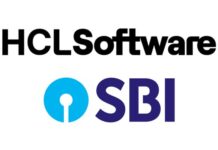MikroElektronika (MIKROE), the embedded solutions company that dramatically cuts development time by providing innovative hardware and software products based on proven standards, today introduced ClickID a hardware/software (HW/SW) open source solution based on a one-wire device that enables hot-plugging of Click or any other mikroBUS -compatible add-on peripheral boards to development boards running embedded Linux or similar OS.
ClickID brings a new level of automation and self-diagnosis to embedded tools. When integrated with a Click boards on an embedded system, it facilitates more complex operations, allowing software to identify add-on board peripheral configurations.
is available for use on any MIKROE development system. This versatile example demonstrates how to read, write, and process data from the ClickID. Additionally, the full application code and ready-to-use projects can be easily installed from NECTO Studio Package Manager, downloaded from LibStock, or found on MKROE’s GitHub account.
Comments Nebojsa Matic, CEO of MIKROE: “Click boards have always featured the standardized mikroBUS sockets which represented a big step forward in the embedded industry as it enabled embedded boards to be more modular and easily upgradable by quickly adding and changing hardware in the form of mikroBUS-compatible add-on boards such as Clicks. Now, by adding HW/SW support that is automatically recognized by popular OS, such as Linux, we have eliminated the challenge of configuring a huge range of devices at boot-time with device trees, which is time-consuming and error-prone.”
Linux-Based Embedded System Support
For Linux-based systems like BeaglePlay, ClickID simplifies the addition and operation of peripheral add-on boards. ClickID communicates with the operating system kernel using the 1-Wire protocol, enabling automatic recognition of silicon ICs on add-on boards. It delivers manifest files to the operating system, facilitating the loading of appropriate drivers for interfaces such as SPI, I2C, UART, PWM, ADC.
Comments Christine Long, CEO of BeagleBoard.org Foundation: “At BeagleBoard.org, we are obsessed with improving developer experiences, especially for new users. We are thrilled to see MIKROE introduce ClickID and to adopt mikroBUS manifests we’ve introduced for future versions of Linux. This is a big step enabling users of boards like our BeagleBoard.org BeaglePlay to simply use the well tested code that is already there without needing to search and integrate, just connect and play!”















